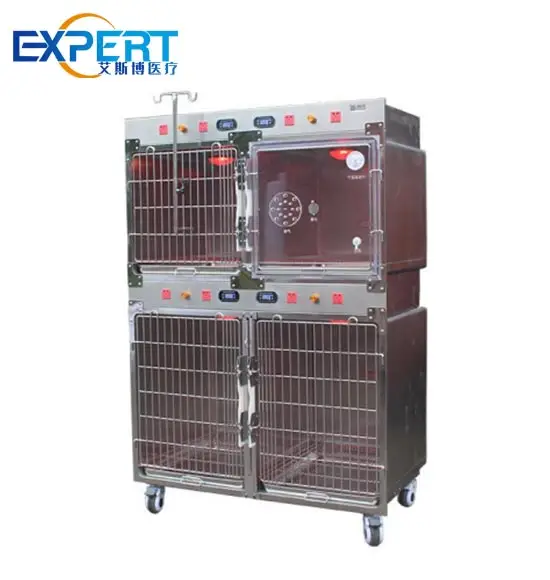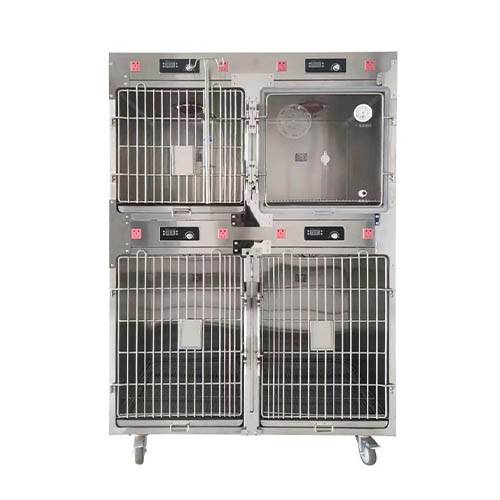Адрес
304 North Cardinal St.
Дорчестер-центр, Массачусетс 02124
Часы работы
С понедельника по пятницу: с 7:00 до 19:00.
Выходные: 10.00 - 17.00
Адрес
304 North Cardinal St.
Дорчестер-центр, Массачусетс 02124
Часы работы
С понедельника по пятницу: с 7:00 до 19:00.
Выходные: 10.00 - 17.00

Veterinary cages play a crucial role in maintaining the safety, security, and comfort of pets during their stay at veterinary clinics or hospitals.
Veterinary cages play a crucial role in maintaining the safety, security, and comfort of pets during their stay at veterinary clinics or hospitals. These cages are designed with various features to cater to different needs of animals, ensuring they receive proper care and attention. In this comprehensive guide, we will explore the importance of veterinary cages, their features, benefits, and how they contribute to enhancing the overall experience for both pets and veterinary staff.

Veterinary cages are specialized enclosures used in veterinary practices to house and care for animals during medical procedures, recovery, or observation. These cages are designed to provide a safe and controlled environment while allowing veterinarians and staff to monitor and treat animals effectively.
Veterinary cages come in various types and sizes to accommodate different species and purposes:
Veterinary cages are typically made from durable materials such as stainless steel or reinforced plastics, ensuring longevity and ease of cleaning.
Cages are available in different sizes to accommodate various breeds and species of animals. They may feature sliding doors, removable partitions, and adjustable shelves for flexibility.
Good ventilation is essential to maintain air quality and prevent the spread of infections. Veterinary cages often include perforated walls or mesh panels for adequate airflow and easy cleaning.






Veterinary cages provide a secure environment that prevents animals from escaping or injuring themselves, especially during recovery or treatment phases.
Cages enable veterinarians and staff to closely monitor animals, administer treatments, and perform medical procedures efficiently.
Well-designed cages offer comfort through features such as soft bedding, temperature control, and minimized stressors, promoting faster recovery and reducing anxiety.
Below is a comparison table of popular veterinary cage models, highlighting their key features and benefits:
| Cage Model | Материал | Функции | Подходит для |
|---|---|---|---|
| Нержавеющая сталь | Stainless steel | Durable, easy to clean, rust-resistant | General use |
| Plastic | Reinforced plastic | Lightweight, easy to move, good visibility | Temporary housing |
| ICU Cage | Stainless steel | Ventilated sides, adjustable shelves | Интенсивная терапия |
| Recovery Cage | Stainless steel | Soft bedding, recovery space | Post-operative care |

Maintaining cleanliness is crucial for preventing the spread of diseases. Clean cages regularly with disinfectants and ensure bedding is changed promptly.
Periodically check cages for any signs of damage or wear, such as rust or loose components. Replace worn-out parts promptly to ensure safety.
Veterinary cages are indispensable tools in veterinary practices, providing a safe and comfortable environment for pets during their stay. By understanding the importance of features such as durability, size, and ventilation, veterinary clinics can enhance the quality of care they provide to animals. Investing in high-quality veterinary cages not only ensures the safety and well-being of pets but also facilitates effective veterinary treatments and procedures.
Veterinary cages should be cleaned daily and disinfected regularly, following strict hygiene protocols to maintain a clean and safe environment for animals.
Yes, veterinary clinics often have specialized cages designed to accommodate large animals such as dogs, cats, and even exotic pets, providing ample space and comfort during their stay.
Consider the material (stainless steel for durability), size (appropriate for the animal’s breed), ventilation (adequate airflow), and ease of cleaning (smooth surfaces) when selecting a veterinary cage for your practice.
Yes, some manufacturers offer customization options to tailor cages according to specific veterinary needs, such as adding partitions, shelves, or specialized features for different medical conditions.
Veterinary cages promote animal welfare by providing a safe, clean, and comfortable environment that supports recovery, reduces stress, and facilitates effective medical care and treatment.